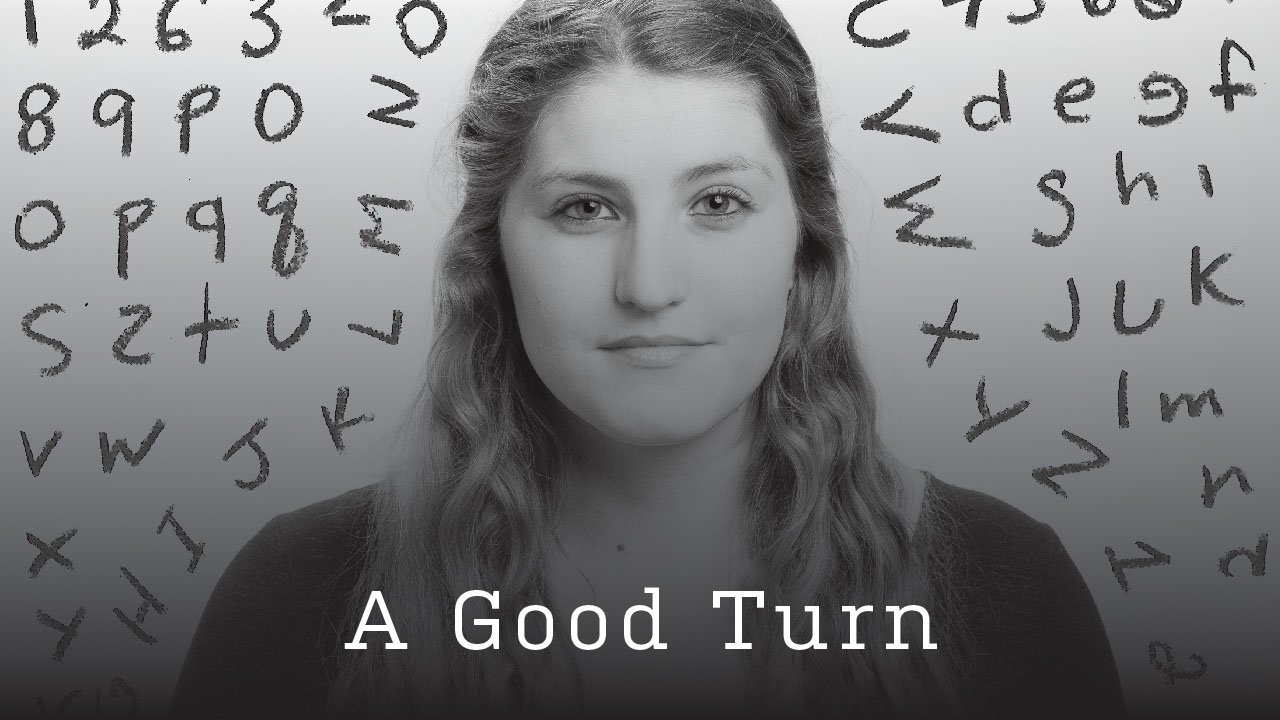Imagine if the letters you’re reading in this article began to move, jump, twist, and turn. That’s what dyslexia looks like for UAB junior Molly Clay (pictured above). And though it makes reading and writing more difficult and time consuming, the disability hasn’t held her back from academic success. In fact, Clay views dyslexia as a positive influence that is shaping her career path and inspiring her to encourage other students facing their own unique classroom challenges.
“I look at my inability to read clearly as a gift,” says Clay (pictured at right), who was diagnosed with the disability during her sophomore year of high school in Rome, Georgia. “I continue to overcome the challenges of dyslexia by helping others overcome theirs. DSS has helped me see that my disability doesn’t define me. It is a part of me, but not all of me.”
Insight and inclusion
DSS stands for UAB Disability Support Services, an office focused on providing equal access to programs, activities, and opportunities inside and outside the classroom. For Clay, that has meant an array of helpful devices, such as a special pen that records lectures as she takes notes and a screen reader on her laptop that will recite textbooks aloud. But the best part of DSS are the people who work there, she says. “They’re open, loving, respectful, and willing to make sure I have the accommodations I need.”
Clay liked them so much that she joined DSS as a student assistant. For the past two years, she has served as a kind of DSS ambassador, introducing the program to students across campus, walking them through the process of obtaining accommodations, answering questions, and addressing their concerns. “I like showing them they can do anything they want to do,” she says. Sometimes Clay shares her own experience with dyslexia with students—and occasionally with parents who call with worries about sending their children with disabilities off to college. “It eases their minds,” she says. “No one will judge students for their accommodations, and even their professors won’t know what their disability is.”
 Source: International Dyslexia Association
Source: International Dyslexia Association
Different is OK
Dyslexia played a role in Clay’s choice to major in psychology. She was sold on UAB from her first visit, she says. (“Everyone I saw on campus had a smile on their face and enjoyed being here,” she recalls. “I fit in. It felt like home.”) But she realized her initial interest in health care focused more on talking with patients instead of administering treatments to them. Plus she had some unfinished business from middle school, where her peers had made life challenging.
“My disability has made it easier to relate to difficulties students go through in school,” says Clay, whose current career goal is to be a middle-school guidance counselor. “I want to make sure today’s kids realize that it’s all going to be OK, and that life goes on. I want to help them realize they can do anything they put their minds to and that there is always someone on the sidelines to help if needed.”
Her psychology lessons have come in handy as she works with students at DSS. Those insights also have helped her better understand herself and her own disability. “I’ve realized people learn in different ways—and it’s OK to be different,” says Clay, who uses mental tricks to identify letters and finds that typing text lessens the anxiety of writing it. “And if you need help, talk with someone. People want to listen.”
Clay’s efforts recently earned her the Karina Eide Memorial College Scholarship for Students with Dyslexia from The Dyslexic Advantage, the largest online network for people with dyslexia and their families, teachers, and other professionals. She was one of just 18 students nationally to receive the award, which commemorates Karina Eide, a woman who encouraged a passion for writing and for mentoring young students. Clay, a dean’s list student, also won a UAB Student Excellence Award in the Commitment to Campus Inclusion category.
“UAB and this scholarship help me see my potential to change the world,” she says. “My disability might make it harder to read and write, but it makes it easier for me to help others realize their dreams.”


